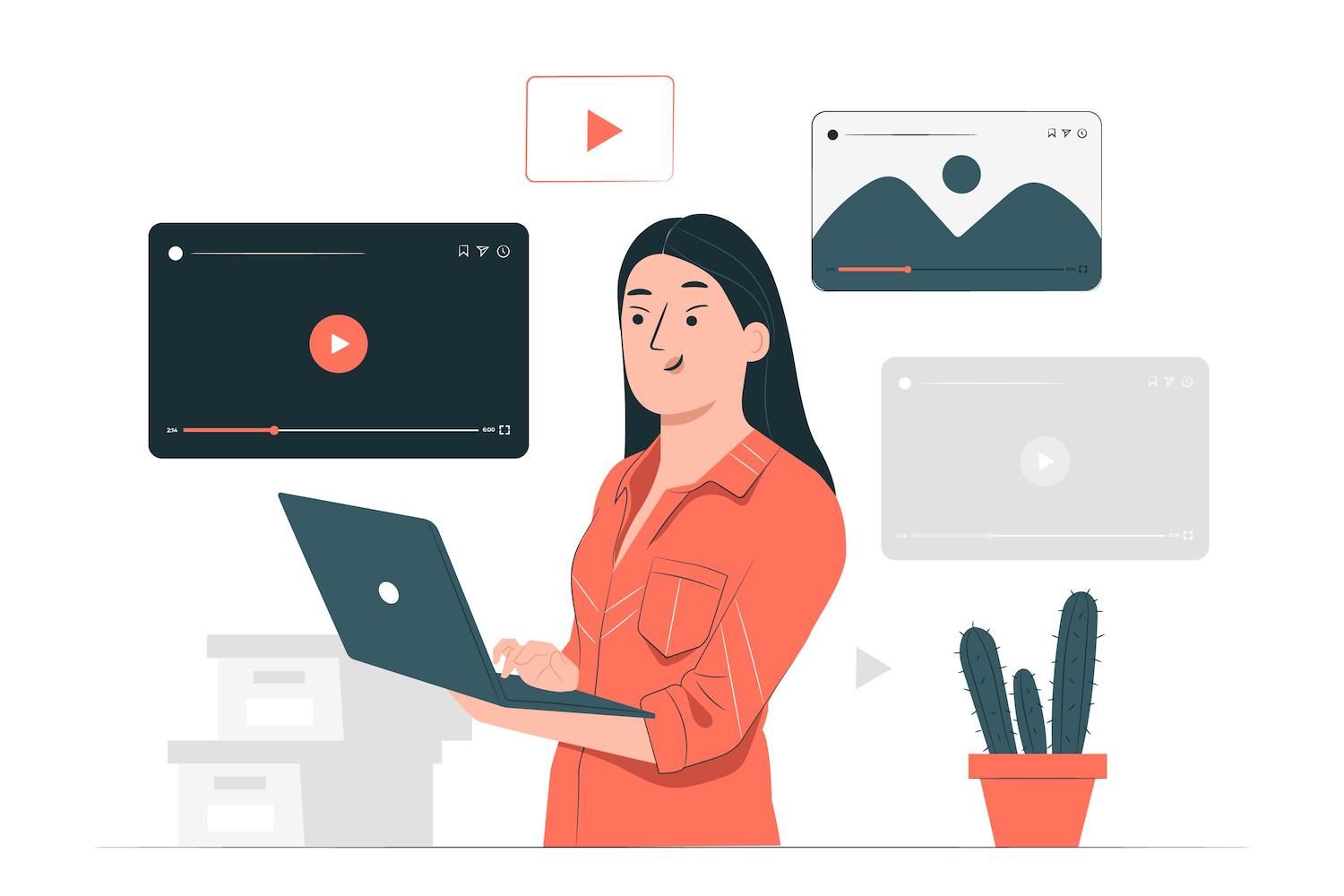Are SaaS Companies Afford to Ignore VAT and Sales Taxes? -
One of the things I've discovered while working is that it's common for SaaS and software firms to ignore transaction-related taxes (sales taxes such as VAT, GST, and so on. ).
And I get it.
Taxes on sales, VAT and GST can be confusing, complicated and are not the things software leaders want to spend their time on.

Also, know that ignoring transaction-related taxes can lead to a risk that goes beyond the payment of some back taxes later in the future.
During one of my conversations with 's Global Tax Director Rachel Harding, one of the most knowledgeable people I have on the subject She told me:
- 40% penalty and interest She's witnessed software companies incur 40% in interest and penalties in the event of ignoring taxes on sales in the state.
- Multi-million dollar valuation adjustments from historical sales tax noncompliance during acquisition due diligence.
Plus there's and more.
To answer our own question: No it is not a good idea to ignore taxes on sales, VAT and GST tax.
In this post in this piece, we will discuss the five main points SaaS businesses need to know about taxes. A lot of this information comes from conversations I had with Rachel. Below, you will be able to listen to two of our chats for more details.
Five Things SaaS Companies Need to Understand Concerning Sales Taxes
1. Sales, VAT and GST Taxes can affect SaaS Valuations
While Rachel was working on a group of tax specialists for mergers and acquisitions for small software companies she was able to observe million-dollar acquisition price increases as a consequence from tax compliance issues.
"If you're looking to have any form of ownership change, majority or minority investment, people want to look into the company's operations," Rachel explained. "They are going to examine all of your procedures and ask questions like, are you aware on where your products are tax-deductible? Are you following these regulations, collecting and remitting? Are you compliant? If not, they'll be required to rectify the issue before buying itor take the purchase price off."
2. If You Do It Right, You Shouldn't Owe Anything Additional
"If you're doing it correctly technically, then it's zero to you," Rachel explained.
Sales tax is a consumption tax -- a tax on the consumer, not on your business. It shouldn't be something you're paying out of pocket. It's up to you to collect sales tax on the buyer's behalf, and then remit it to the proper public agency. The buyer is responsible and a seller's responsibility.
"It's the moment you've done it wrong that it becomes an expense and liabilities in your balance report. It's possible, but you're not likely to assess a customer sales tax for two years following the time the tax was due. Therefore, it's completely from your pocket."
3. Consumption Taxes Are Calculated based on the location that the buyer is located, not the Seller
Taxes on sales are a bit complicated (especially in countries like the U.S.), but in general, the thing to remember is that sales taxes are taken into account where the item is realized (aka the place where your customer is located). It's not determined based on the location of your business, or the location of your corporate headquarters.
The most relevant data used to determine the source of sales is the invoice number as well as the computer's IP address. As the name implies, SaaS is taxed the same way as products, but not services and therefore only 20 of the 45 U.S. states that have sales tax regimes actually tax SaaS. Since 2018if there are sufficient taxable sales within a zone that exceeds the limit, then you're legally considered to be an economic nexus (a special shout-out to South Dakota v. Wayfair to explain this idea! ).
A threshold for sales is the amount of sales you have in a specific area before having to file taxes. Each tax region (whether it's a territory, state, territory or even a national at a global level) is unique in setting the threshold.
4. Tax Laws and Regulations Have Significantly changed in the last 10 Ten
Sales taxes, VAT and various other taxation related to transactions have changed a lot in the past ten years. Certain adjustments are more crucial than others, but they've changed the entire landscape.
2015: EU requires VAT collection For Software Firms that aren't EU members.
Since January 1st, 2015 The EU began requiring software sellers to collect and remit VAT according to the location of the purchaser and not on the place of operation for the seller's company or employees.
The VAT rates are determined by the country, meaning governments are accountable to keep up with any changes to these rates on an individual level.

2018: U.S. Votes That States Can Collect Sales Taxes from non-resident businesses.
In the year 2018, the U.S. Supreme Court ruled that states can impose sales tax on purchases made through sellers located outside the state (including sellers who sell online) regardless of whether the seller is not located in an actual presence in the state that taxes it ( South Dakota v. Wayfair, Inc.). (A.k.a. this is the main reason why we write this article since now nonresidents and businesses of all sizes must know about sales tax and the way it is applied.)
In the U.S., sales tax rules vary state by state. Florida and California don't require the collection of sales tax on SaaS subscriptions. But New York and Pennsylvania do.
In the year 2020 Massachusetts reclassified SaaS charges as "personal tangible property," which means SaaS subscriptions are now subject to sales taxes in the state.
In our interview, Rachel offers other examples of tax law shifting to SaaS businesses around the globe:
"We have seen, around the globe, countries adopting rules that target companies that are not resident in the country and provide digital goods and services. There are some that have a limit for sales while some states that each dollar is taxable."
5. Global Consumption Taxes Continue to Get More Complex
Tax laws are currently getting passed which directly impact SaaS. Very soon, in all over the world, SaaS companies running digital platforms might be required to disclose every seller that uses their platform.
What is the reason tax laws are becoming more complex?
Nations are aware of the loss of the tax revenues from digital sales that software companies aren't disclosing.
In the process, they're finding new ways to trace the flow of cash in their states or nation and to enforce the collection.
The 4 Ways SaaS Companies Can Manage Sales Taxes and VAT
How do SaaS companies figure out all the taxes they need to pay and withhold around the world?
Four approaches we observe SaaS companies take to fulfill their tax obligations related to transactions:
1. Ignore It
As we've described in this article, ignoring sales tax is a frequent practice, but one that could make your company liable for many years of tax back as well as penalties, charges, and fees. The days where this approach can work is shrinking. As online commerce continues to expand, so does the drive and ability to manage it.
2. They'll do it themselves
Tax preparation on your own is a good option for companies that have the capacity to do the tax burden with an internal team.
It's just not as straightforward as integrating an automated tax tool into the sales system you use.
SaaS firms also must be thinking about:
- Ensure that your information is safe and easily accessible.
- Understanding what's taxable and the rates to charge.
- Checking tax thresholds for the time to determine the deadlines to pay taxes as well as file tax returns.
- Making sure you pay the proper amount and submitting returns by the deadline in all tax authorities where you have an obligation. It could be a monthly annual, quarterly or even annually.
- Staying informed about changes in tax laws and regulations.
- Responding to notices and inquiries from Tax authorities. Is it phishing or is it actionable?
This can be burdensome for finance departments that do not have knowledge of technology and may cause discontent and increased turnover.
3. Hire an Accounting Firm
When you decide to outsource your tax obligations as a result, you'll have lesser internal resources to be utilized however it will increase the cost. And rather than a customized approach, hiring an accounting firm usually means they'll take a conservative approach that is compliant to the highest degree -- even if you would prefer something more customized.
The perspective is one that only an in-house tax expert could provide -- one that requires understanding the business strategy, the tax regulations, and the ways in which they intersect.
4. Make use of the services of a Merchant of Record (MoR) and Outsource the Liability
At , we act as the primary merchant on every transaction on your website and are responsible for collecting taxes and remitting them for you. It doesn't matter if you're trying to deal with the tax rate reduction, custom taxation, tax-exempt transactions, B2C or B2B -- everything is managed for you.
The merchant of record is also at your side if any tax audits or inquiries are raised. In the event of an audit then we step in and assist you -- so you can stay focused on building and growing your SaaS business.
What's the Best Solution for your company?
Perhaps this seems overwhelming, but the worst choice is nothing.
In the words of Rachel put it, "I can never promise that you will or won't be audited. But what I can promise is that small actions now can make you a better candidate for more brighter and better future."
To figure out what's best for your company, she recommends assessing your resources and your alternatives.
"It's really knowing the business you operate, the footprint of your business, tax regulations (duh) and the risks you're willing accept."
Watch My Full Interviews with Rachel Harding
Part One: The Reasons SaaS Companies Can't Afford to not pay sales tax
Part 2: How Stricter Tax Laws Will Mean For SaaS

